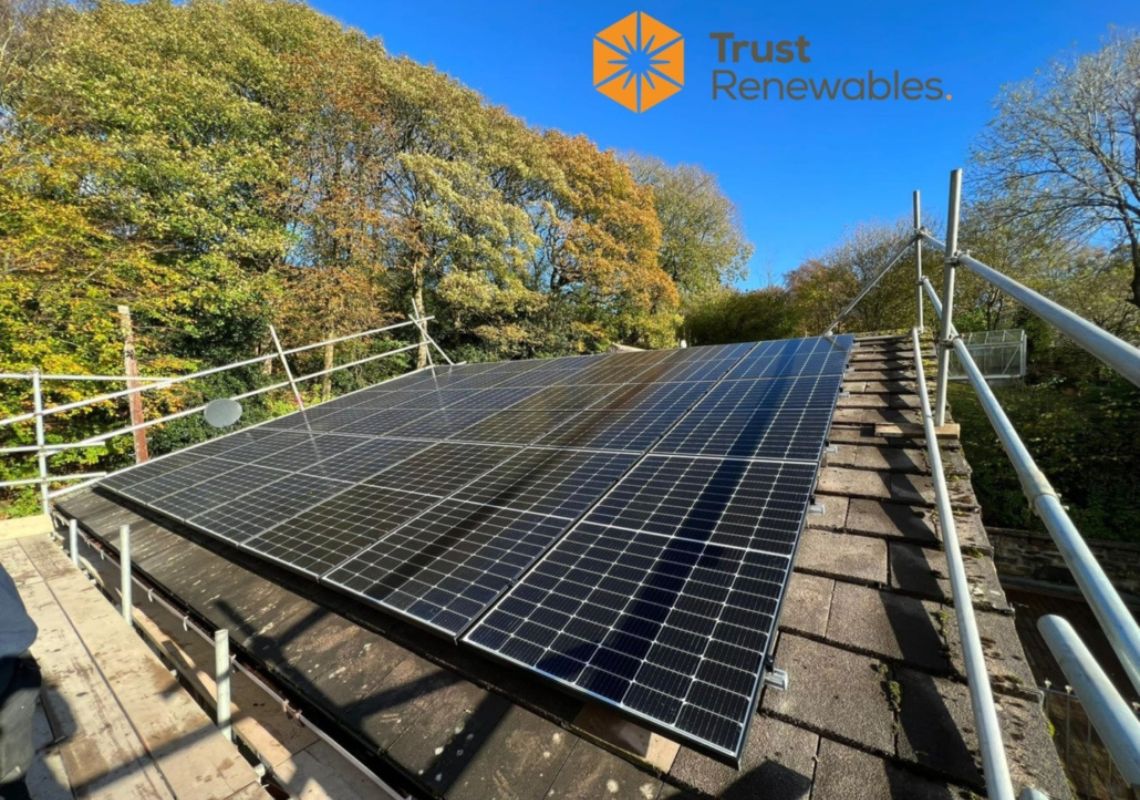GUEST BLOG – A Solar Powered Future for Greater Manchester

Dave Bailey, Director at Trust Renewables shares his knowledge about solar energy and what changes are needed as Greater Manchester looks ahead to its 2038 carbon-neutral target.
The problem with energy today
The production of energy is responsible for 87% of global greenhouse gas production. There is no doubt that our reliance on the burning of fossil fuels is causing climate change.
In addition to the environmental damage caused by our energy supply, we are now seeing significant societal problems caused by energy, as millions of households are thrown into fuel poverty due to soaring energy prices. Here in the UK the majority of the electricity entering the national grid is from a single energy source; natural gas. The long winters, made worse by climate change, have depleted gas reserves in the Northern Hemisphere and the UK has not done as well as our European neighbours in either securing additional gas supplies or intervening to reduce domestic energy bills. And, although less than 5% of UK gas comes from Russia, their invasion of Ukraine has made obtaining gas much more difficult.
The dawn for renewable energy
There is, however, room to be optimistic. 2020 was the first year in the UK when renewable energy overtook fossil fuels to provide 43% of power generation. With the increasing adoption of renewable measures, not only is the energy cleaner, it is also now cheaper. The Government has committed to fully decarbonising electricity generation by 2035, which will require a big push to install renewable measures at scale.
Solar energy is now one of the most cost-effective ways to get the UK to net-zero carbon emissions. However doing so will require the UK to triple its solar capacity by 2030.
Myths about solar energy
The fossil fuel industry tries to maintain their market share through government lobbying however there still remains several myths about solar.
A common myth is that the general public do not like solar and consider solar farms an eyesore. However, a national survey by Censuswide showed that 58% of the public supports the prioritising of solar in national planning decision (compared to 6.5% opposed) and 56% of people living near solar farms are in support for local solar development (compared to 25% opposed).
Another myth is that solar farms damage agricultural land, where in reality, solar farms deliver net gains in biodiversity and can directly support agriculture through conservation grazing, increased pollination of crops and improved soil quality.
Plans for Greater Manchester
Currently, Greater Manchester is responsible for approximately 3.6% of the UK’s annual CO2 emissions and has ambitious targets to become carbon neutral by 2038 (12 years ahead of the government’s target). Solar is a key part of this plan. Approximately 60,000 homes will need to be retrofitted with green measures, if we are to meet the carbon targets. However, there is already a shortage of between 5,000 and 6,000 skilled trades in Greater Manchester, so this is a challenge for the retrofit effort.
As a social enterprise, Trust Renewables are committed to helping the region meet its carbon targets and adding value to our local communities. We work with local colleges, schools and charities to educate young people about green careers and skills. Groundwork is one of these organisations who share our goals around green growth and we’re pleased to be supporting their work creating pathways for young people to enter the workforce. It’s always a pleasure to come and contribute to the learning experience of the people on these courses, many of which have faced challenges in their young lives, and see how they are benefitting from Groundwork’s support.
In addition to attracting new workers to the industry, it is estimated we will need to upskill 80,000 existing construction workers. There are some great opportunities and this is an exciting time for the industry.
Summary
Demand for solar has skyrocketed in the last few years. Gone are the days of needing subsidies to make solar worthwhile. Homeowners and businesses are choosing solar because it’s a sound investment that not only reduces bills but adds value to the property.
To give you some rough costs; installing an 8-panel solar system on your roof would cost around £5,500. Based on current electricity prices, the energy the system would generate each year would be worth around £900 (if you were able to use it all yourself).
Batteries can now be used to store your free, solar-generated electricity for a time when you can use it, and any electricity you can’t use can be sold back to the grid as part of the Smart Export Guarantee (SEG). Some energy suppliers are now offering a SEG rate as high as £0.15 per kWh.
The financial benefits that solar brings are now a strong incentive to choose a green future, as well as the positive impact it has for the planet.
Sources
- https://assets.publishing.service.gov.uk/government/uploads/system/uploads/attachment_data/file/911817/electricity-generation-cost-report-2020.pdf
- https://solarenergyuk.org/wp-content/uploads/2022/01/Copper-Consultancy_Solar-Energy-UK_Public-attitudes-to-solar_January-2022.pdf
- https://ourworldindata.org/worlds-energy-problemhttps://www.greatermanchester-ca.gov.uk/media/6018/retrofitgm.pdfhttps://www.greatermanchester-ca.gov.uk/media/6019/gm-skills-intelligence-pack-green-economy-feb-2022.pdf
- https://energysavingtrust.org.uk/advice/solar-panels/
